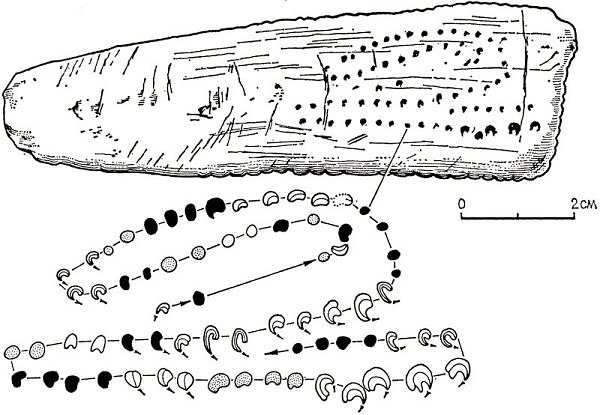History Summaries
Wednesday, May 22, 2024
Field Trips & Tours (virtual) links vetted and reconfirmed 11/22/2024
Wednesday, May 18, 2022
Virtual Field Trips #museumday May 18th is International Museums Day
PARADOX OF LIBERTY (monticello.org) 3rd President Thomas Jefferson's home, Monticello, Virginia.
National World War I Museum and Memorial - Virtual Tour – Joy of Museums Virtual Tours
https://joyofmuseums.com/
International Museums Day is May 18th yearly.
https://icom.museum/en/our-actions/events/international-museum-day/
https://celebratepicturebooks.com/2022/05/18/may-18-international-museum-day-5/
According to https://www.calendarlabs.com/holidays/international/international-museum-day.php :
Best Museums in the World
The best museums in the world are popular tourist attractions during the International Museum Day period. This list with some of the best ten museums will also help you determine where to visit during the next Museum Day.
1. The Louvre in Paris, France
2. British Museum in London, UK
3. National Museum of China
4. National Museum of Natural History, Washington DC
5. Vatican Museum, Vatican City
6. National Palace Museum in Taipei Taiwan
7. Rijksmuseum in Amsterdam, Netherlands
8. Museo Nacional Del Prado in Madrid
9. National Gallery, Athens
10. Metropolitan Museum of Art New York, NY
Thursday, October 22, 2020
North American History - Annotated Bibliography
North American History - Annotated Bibliography
1 https://www.timelineindex.com/content/select/1433/45,1340,1433 Excellent timeline combined with identification of 437 items. *Note: when expanding entries, the timeline shifts to other categories. Return to previous entry before continuing, in order to stay on task and on topic. ** This is not a scholarly source, it links Wikipedia for further research. Thus, TimeLineIndex is a starting point, but all information needs to be referenced with three sources (that do not reference each other) for accuracy.
2
Tuesday, December 3, 2019
Saturday, November 10, 2018
100th anniversary: Armistice Day/Veteran's Day/Remembrance Day November 11, 1918.
https://www.youtube.com/watch?v=Cd2ch4XV84s
https://www.youtube.com/watch?v=fi1OyVB2laY&spfreload=10
Tuesday, June 5, 2018
Identify (ID): The Peloponnesian War
A testing method for history students is the ID or "identify" a person or event from history in as little as two sentences. Keep the IDs very concise, and save your time for the longer essay(s). Study for your exam by rewriting these IDs after each lecture ("revision notes") and reviewing them by the "spaced-repetition" method.
Example:
The Peloponnesian War (431 B.C. to 404 B.C.) was a series of battles between Sparta and her allies versus Athens and her allies in the region of Greece. The Athenian general and historian, Thucydides, wrote volumes on the Peloponnesian War of which he was an eye-witness until he was exiled. Sparta and her allies won.
Grade: With the assumption that an exam would be taken in a proctored room and written out with pen on paper, the order of the sentences would not be editable, but an arrow could be inserted if done neatly. The above ID example would earn likely lose two to three points for attaching a Thucydides ID in sentence two instead of explaining the cause of the war, the method of warfare, and the resulting significance.= 2/5
Sunday, December 31, 2017
Lunar v. Solar calendars

The first recorded change from lunar to solar calendars was made by the Egyptians. The rise of the Sirius above the horizon, just before dawn, indicated when the Nile would flood.1 The solar calendar of 365 days and 6 hours. "Instead of 32 years with the moon, it is 1460 years before Sirius rises again on the first day of the first month."1, 4
| Sirius |
Twelve lunar months make up 354 days. The a lunar calendar is eleven days shorter than a solar calendar year. The Muslim calendar rights itself every 32 years. The Babylonians, Roman Republic, and the Jewish calendars add(ed) a month to make up for the shortage. 1
"The lunar month on the Jewish calendar begins when the first sliver of moon becomes visible after the dark of the moon. In ancient times, the new months used to be determined by observation. When people observed the new moon, they would notify the Sanhedrin. When the Sanhedrin heard testimony from two independent, reliable eyewitnesses that the new moon occurred on a certain date, they would declare the rosh chodesh (first of the month) and send out messengers to tell people when the month began."5 Festivals and religious holidays always occur on the same Jewish calendar day, unlike the civil calendar.5
1 http://www.historyworld.net/wrldhis/PlainTextHistories.asp?historyid=ac06
2 https://sservi.nasa.gov/articles/oldest-lunar-calendars/
3 Aurignacian Lunar Calendar(image) from source 2
4 https://tse1.mm.bing.net/th?id=OIP.ZfCeNQdINfGJ7QpAYVppwgHaHI&w=92&h=105&c=8&rs=1&qlt=90&dpr=1.090909&pid=3.1&rm=2 (image of Sirius)
5 http://www.jewfaq.org/calendar.htm